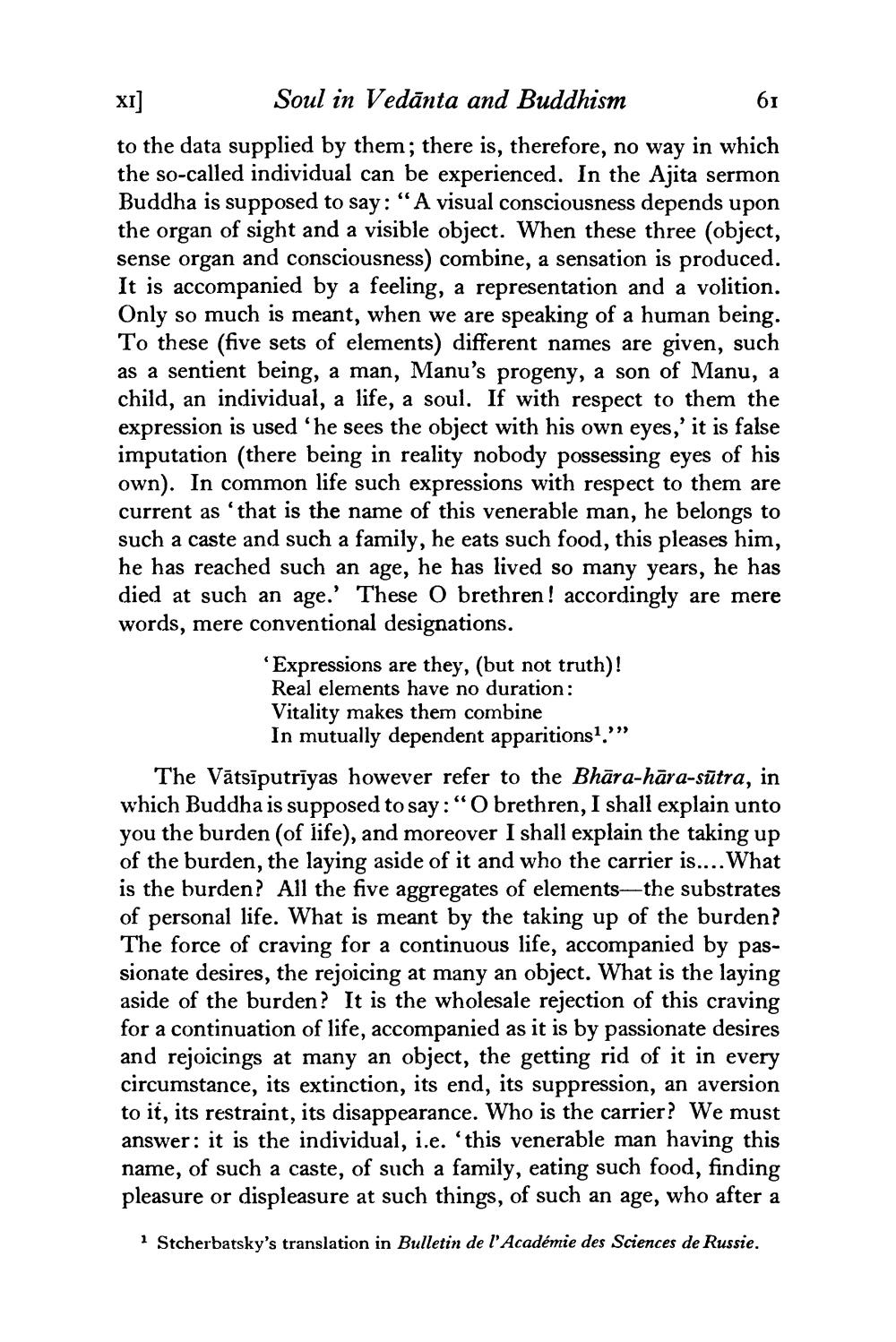________________
61
XI]
Soul in Vedānta and Buddhism to the data supplied by them; there is, therefore, no way in which the so-called individual can be experienced. In the Ajita sermon Buddha is supposed to say: “A visual consciousness depends upon the organ of sight and a visible object. When these three (object, sense organ and consciousness) combine, a sensation is produced. It is accompanied by a feeling, a representation and a volition. Only so much is meant, when we are speaking of a human being. To these (five sets of elements) different names are given, such as a sentient being, a man, Manu's progeny, a son of Manu, a child, an individual, a life, a soul. If with respect to them the expression is used 'he sees the object with his own eyes,' it is false imputation (there being in reality nobody possessing eyes of his own). In common life such expressions with respect to them are current as 'that is the name of this venerable man, he belongs to such a caste and such a family, he eats such food, this pleases him, he has reached such an age, he has lived so many years, he has died at such an age. These O brethren! accordingly are mere words, mere conventional designations.
Expressions are they, (but not truth)! Real elements have no duration: Vitality makes them combine
In mutually dependent apparitions?." The Vātsīputrīyas however refer to the Bhāra-hāra-sūtra, in which Buddha is supposed to say:“O brethren, I shall explain unto you the burden (of life), and moreover I shall explain the taking up of the burden, the laying aside of it and who the carrier is.... What is the burden? All the five aggregates of elements—the substrates of personal life. What is meant by the taking up of the burden? The force of craving for a continuous life, accompanied by passionate desires, the rejoicing at many an object. What is the laying aside of the burden? It is the wholesale rejection of this craving for a continuation of life, accompanied as it is by passionate desires and rejoicings at many an object, the getting rid of it in every circumstance, its extinction, its end, its suppression, an aversion to it, its restraint, its disappearance. Who is the carrier? We must answer: it is the individual, i.e. 'this venerable man having this name, of such a caste, of such a family, eating such food, finding pleasure or displeasure at such things, of such an age, who after a
1 Stcherbatsky's translation in Bulletin de l'Académie des Sciences de Russie.




